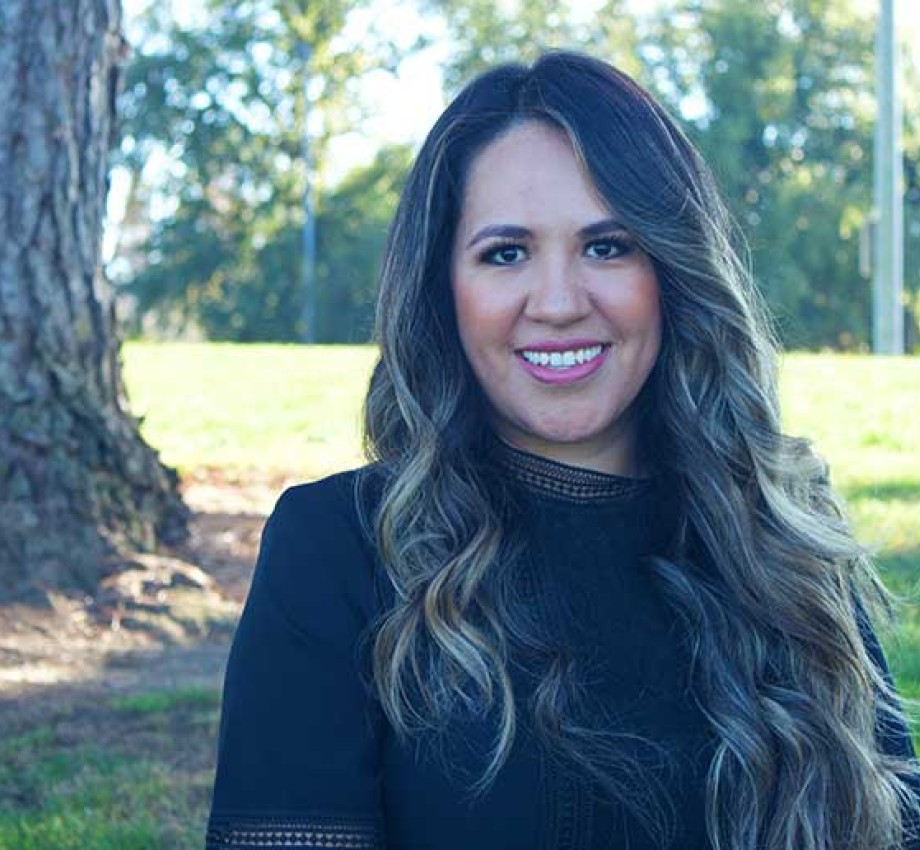
Kenia Macias was a migrant child. She would travel with her father from Mexico to Arizona for a few months so that her father could work. And when those few months elapsed, the two would move back to their native Mexico.
But school didn’t stop—no matter where Kenia was living at the time.
And as a non-native English speaker, Kenia had to work that much harder to learn her lessons.
While sitting in her first-grade classroom in Arizona, Kenia recalls that “the teacher was trying to explain things to me and I was just staring at her. I still remember that. It was traumatic because I really wanted to do good in school, but I couldn't. I didn't understand what the teacher was saying. Nobody in my class spoke Spanish.
“It was a struggle because I would be in the U.S. for a few months and would start understanding English, but then we’d have to go back to Mexico.
“I stopped coming to the U.S. with my dad when I was 11. I told him, ‘I can’t do this. I really want to do good in school.’ So I stayed in Mexico.”
But her love of the English language never wavered. In fact, those short experiences in an Arizona classroom only fueled her passion to learn and understand the language.
And that’s when she decided to become an ESL teacher.
After receiving her Bachelor’s in ESL Teaching from the University of Guadalajara, Kenia headed straight to the classroom, teaching at various language institutions in Jalisco, Mexico. A few years later, Kenia moved to the U.S. and continued her teaching career at Fairfield-Suisun Adult School; she is also now the school’s English Language Acquisition department chair.
However, a bump in the road soon appeared. When Kenia started teaching at the adult school, she had a preliminary teaching credential. She had submitted all of her paperwork to get a clear credential, but wasn’t sure of what other steps she needed to take.
“I figured that if I needed to do something else, they would inform me,” Kenia says. “But I never heard from anybody until a few years later, when the credential specialist at the adult school told me about your Designated Subjects Adult Education Teaching Credential program.”
You were teaching while taking our classes. Were you able to apply lessons learned in our classes to yours?
Yes, I applied material right away into my lessons. For example, I started creating project-based activities. No more exams. Instead, we work on a project and this is my rubric. I tell my students, “This is exactly what I want you to do,” and just let them do it because it's adult education.
Right now, I also teach a Google computer class where my students do weekly projects.
Kenia is known for her dynamic teaching and warm demeanor. Her lessons are always carefully planned to incorporate multiple literacy levels and speaking opportunities for students. Whenever I visit the classroom, the students are speaking, which shows both engagement and a welcoming environment.”
—Scholarship recommender Elizabeth Kolakoski, Principal at Fairfield-Suisun Adult School
And many of your classmates are also teachers or want to become teachers.
You connect with a lot of people. I'm still in touch with many of them and we talk about projects that we’re working on and get each others’ advice and share ideas.
I really like that we were able to network.
You were recently awarded one of our scholarships. Congrats!
Thank you! I recently finished all of my classes, and it was a struggle because at the time I applied for the scholarship, my youngest was in daycare and I am paid hourly at the adult school.
When I found out that I was granted the scholarship, I was so excited because it paid for my last set of classes.
I have to do a couple more observations and then submit everything to clear the credential, but I’m done with the program, which was amazing.
How have you shifted your teaching due to the pandemic?
Last year, I was teaching the Google computer class in a hybrid format. So when we had to go fully online, it was not as bad.
But it's been hard because many of my students need in-person help. We're taking it one day at a time. I always tell them to be patient with technology, patient with me and patient with themselves.
In the future, there are some students who will need in-person support, but there are some students—such as mothers who are so busy—who will want everything online. And then for those who are in between, we can do hybrid learning.
The certificate gave me the tools that I needed to continue my career and a lot more confidence.
What does earning the certificate mean to you?
It gave me so much confidence. At the beginning, I was scared because I didn’t know what to expect. I didn't know if I was going to be able to do well in class. Was I going to be successful?
But after completing those classes, I feel confident. I can perform as well as everybody else.
The certificate gave me the tools that I needed to continue my career and a lot more confidence.
I'm planning on continuing my education. I had to pause because I have two daughters, but they’re seven and nine now. I want to get a master’s degree and am thinking of applying to UC Berkeley’s Master's in Applied Linguistics.
What advice would you give to someone who's just starting the certificate?
Don't give up.
And even after you complete the certificate, keep going. As teachers, we can always take classes to improve our skills. There's always something new to learn.